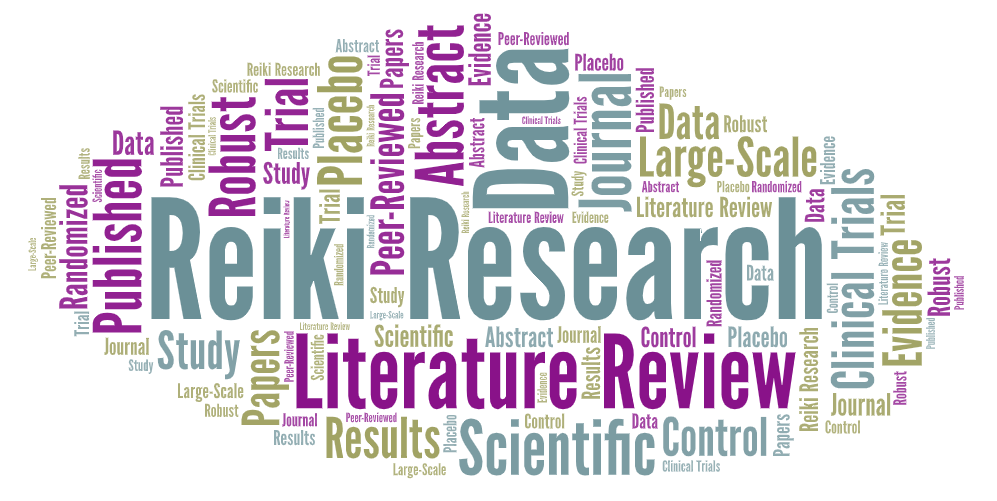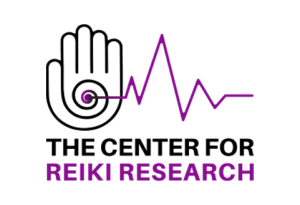Current Status of Reiki Research 2024

By Ann Baldwin, PhD, Professor Emerita of Physiology, University of Arizona; Director of Mind-Body-Science; and Editor-in-Chief, Center for Reiki Research
According to the NIH National Center for Complementary and Integrative Health web site entry for Reiki (last updated in December 2018):
“Reiki hasn’t been clearly shown to be effective for any health-related
purpose. It has been studied for a variety of conditions, including pain,
anxiety, and depression, but most of the research has not been of high
quality, and the results have been inconsistent.”
The evidence suggests otherwise.
As of July 2024, there are 140 Reiki research papers that have been published in peer-reviewed scientific journals, but most are pilot studies with small numbers (fewer than 20) of participants per group, and many do not include appropriate control groups. For these reasons, the medical profession often dismisses these studies as inconclusive. A closer examination of overlapping data from some of the stronger pilot studies and the 13 larger scale clinical trials with 30 or more participants per group (see list below) supports the ability of Reiki to reduce anxiety and pain, and suggests its usefulness to induce relaxation, improve fatigue, burn-out and depressive symptoms, and strengthen overall wellbeing.
Four published literature reviews of Reiki research (see list below) state that there is sufficient evidence to conclude that Reiki is more effective than placebo in reducing pain and anxiety and that it has the potential for managing chronic health conditions and postoperative recovery. The research on Reiki’s effectiveness is promising, but more large studies are needed to convince medical professionals to invest their time, finances, and effort in researching how Reiki can serve as an adjunct to allopathic medicine. Only through successful, scientifically robust, large-scale clinical trials will the decision-makers at top scientific and medical institutions be convinced to support the widespread use of Reiki in hospitals, clinics, and hospices.
Published Reiki clinical trials with at least 30 participants per group:
- Gillespie E.A., Gillespie B.W., Stevens M.J. (2007). Painful Diabetic Neuropathy: Impact of an Alternative Approach. Diabetes Care. 2007;30:999–1001.
- Catlin A., Taylor-Ford R.L. (2011). Investigation of Standard Care Versus Sham Reiki Placebo Versus Actual Reiki Therapy to Enhance Comfort and Well-Being in a Chemotherapy Infusion Center. Oncol Nurse Forum. 2011;38:E212–E220.
- Kurebayashi, L.F.S., Turrini, R.N.T., Souza, T.P.B.D., Takiguchi, R.S., Kuba, G., & Nagumo, M.T. (2016). Massage and Reiki Used to Reduce Stress and Anxiety: Randomized Clinical Trial. Revista latino-americana de enfermagem, 24.
- Charkhandeh, M., Talib, M.A., & Hunt, C.J. (2016). The Clinical Effectiveness of Cognitive Behavior Therapy and an Alternative Medicine Approach in Reducing Symptoms of Depression in Adolescents. Psychiatry Research, 239, 325-330.
- Chirico A., D’aiuto G., Penon A., et al. (2017). Self-Efficacy for Coping with Cancer Enhances the Effect of Reiki Treatments During the Pre-Surgery Phase of Breast Cancer Patients. Anticancer Research, 37(7), 3657-3665.
- Vergo, M.T., Pinkson, B.M., Broglio, K., Li, Z., & Tosteson, T.D. (2018). Immediate Symptom Relief After a First Session of Massage Therapy or Reiki in Hospitalized Patients: A 5-year Clinical Experience From a Rural Academic Medical Center. The Journal of Alternative and Complementary Medicine, 24(8), 801-808.
- Dyer N.L., Baldwin A.L., Rand W.L. (2019). A Large-Scale Effectiveness Trial of Reiki for Physical and Psychological Health. The Journal of Alternative and Complementary Medicine, 25(12), 1156-1162.
- Jurkovich P., Watson S. (2020). Implementation of a Volunteer Reiki Program at an Academic Medical Center in the Midwest. Journal of Holistic Nursing, 0898010120907734.
- Topdemir E.A., Saritas S. (2020). The Effect of Preoperative Reiki Application on Patient Anxiety Levels. EXPLORE, 17(1), 50-54.
- Bondi, A., Morgan, T., & Fowler, S.B. (2020). Effects of Reiki on Pain and Anxiety in Women Hospitalized for Obstetrical- and Gynecological-Related Conditions. Journal of Holistic Nursing, 0898010120936437.
- Buyukbayram Z., Saritas S.C. (2020). The Effect of Reiki and Guided Imagery Intervention on Pain and Fatigue in Oncology Patients: A Non-Randomized Controlled Study. EXPLORE, 17(1), 22-26.
- Utli H., Yağmur Y. (2021). The Effects of Reiki and Back Massage on Women’s Pain and Vital Signs Post Abdominal Hysterectomy: A Randomized Controlled Trial. EXPLORE (NY), 0000, 1-8. Doi. https://doi.org/10.1016/j.explore.2021.07.004.
- Utli, H., & Birgul, D.B. (2022). The Effect of Reiki on Anxiety, Stress, and Comfort Levels Before Gastrointestinal Endoscopy: A Randomized Sham-Controlled Trial. Journal of Peri-Anesthesia Nursing, 00(00), 1-8. doi: https://doi.org/10.1016/j.jopan.2022.08.01.
Published Reiki research literature reviews:
- McManus, D.E. (2017). Reiki Is Better Than Placebo and Has Broad Potential as a Complementary Health Therapy. Journal of Evidence-Based Complementary & Alternative Medicine, 2017 Oct; 22(4): 1051–1057. doi: 10.1177/2156587217728644
- Morero, J.A.P., de Souza Pereira, S., Esteves, R.B., Cardosos, L. (2021). Effects of Reiki on Mental Health Care: A Systematic Review. Holistic Nursing Practice, 2021 Jul-Aug;35(4):191-198. doi: 10.1097/HNP.0000000000000456.
- Zadro, S., Stapleton, P. (2022). Does Reiki Benefit Mental Health Symptoms Above Placebo? Front Psychology, 2022 Jul 12:13:897312. doi:10.3389/fpsyg.2022.897312. eCollection 2022.
- Humphreys, E., Cabrera, E., Downey Luhrmann, S. (2023). The Effectiveness of Treating Anxiety With Reiki. Journal of Behavior Therapy, DOI:10.14302/issn2474-9273.jbtm-23-4712 Corpus ID: 264051702




Leave a Reply
Want to join the discussion?Feel free to contribute!